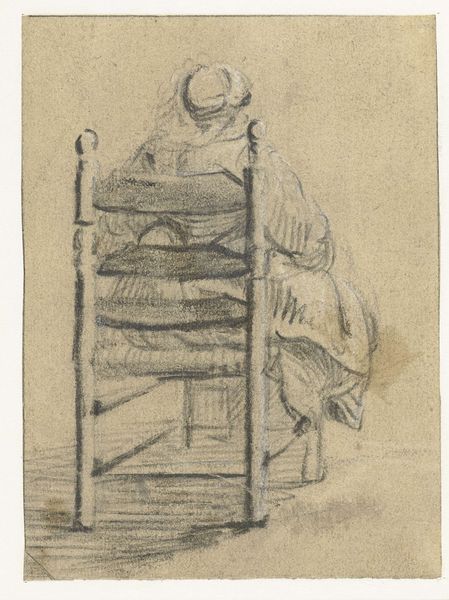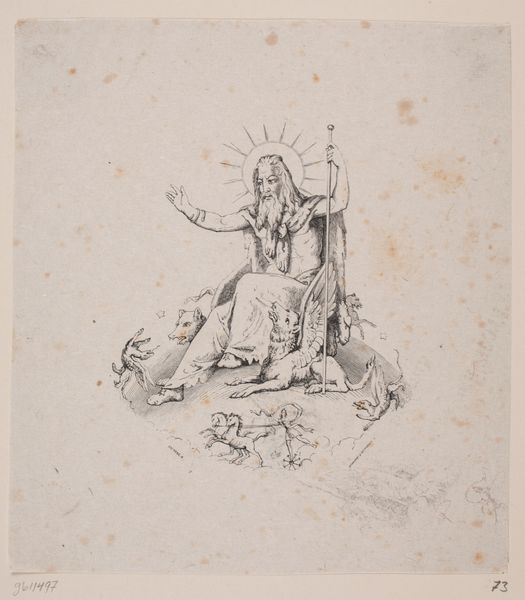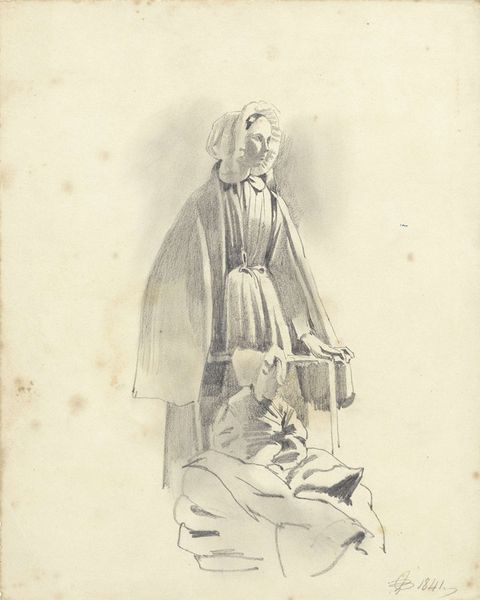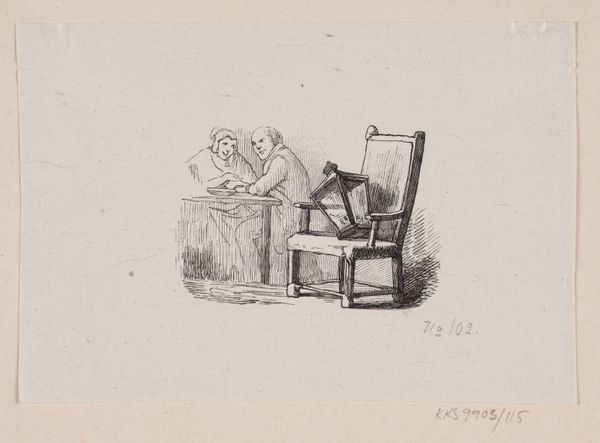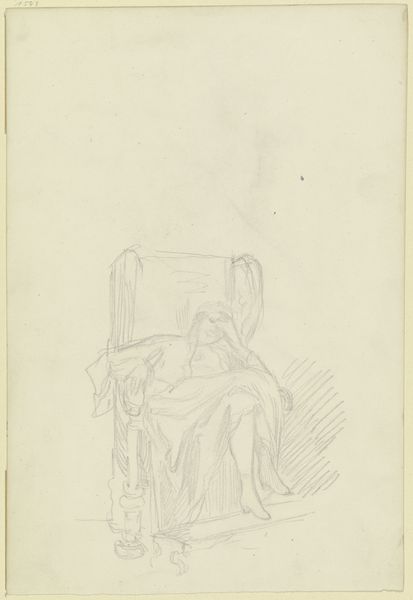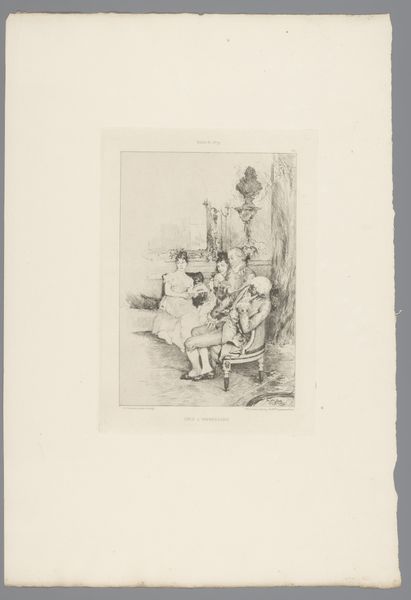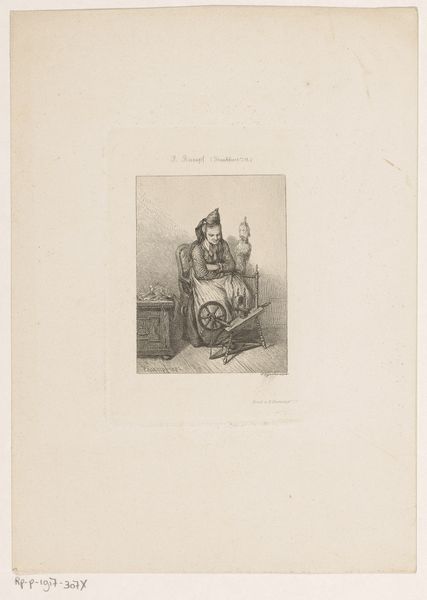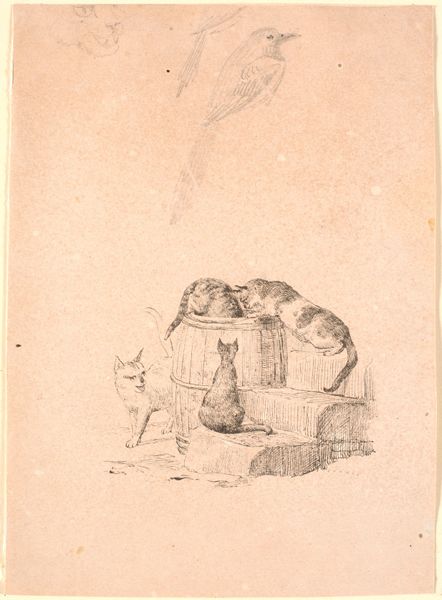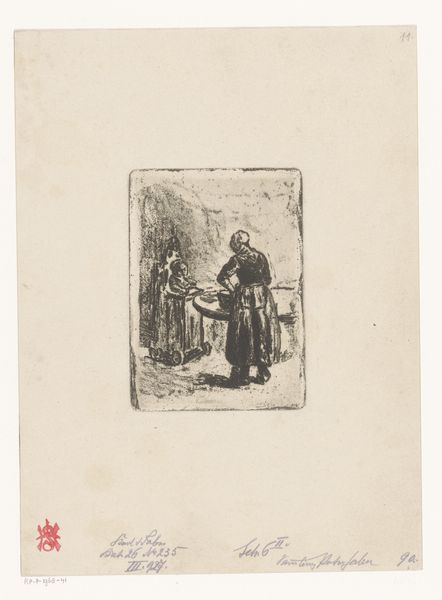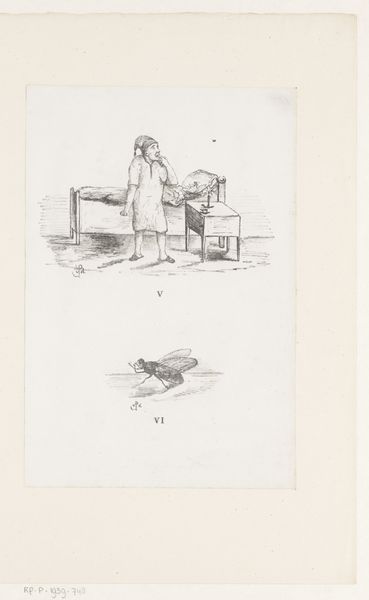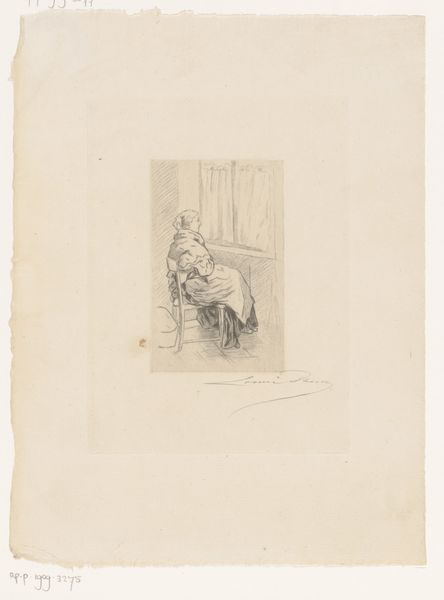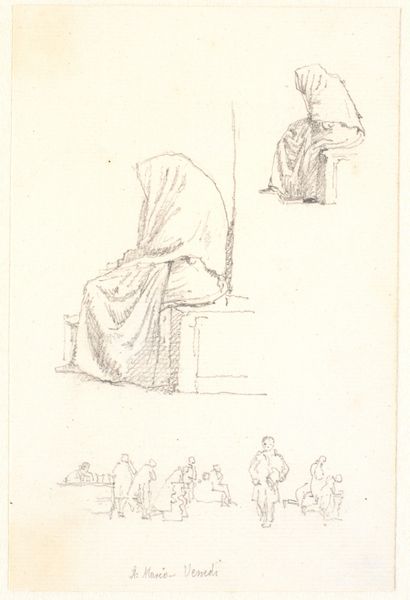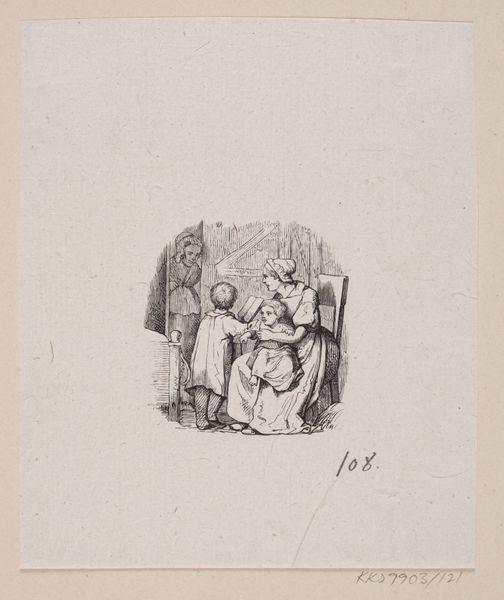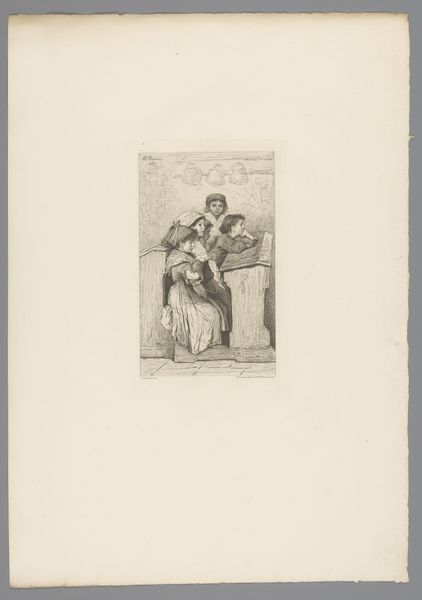
drawing, pencil
#
portrait
#
drawing
#
amateur sketch
#
toned paper
#
light pencil work
#
quirky sketch
#
pencil sketch
#
personal sketchbook
#
romanticism
#
pen-ink sketch
#
pencil
#
sketchbook drawing
#
pencil work
#
genre-painting
#
sketchbook art
#
realism
Dimensions: height 224 mm, width 179 mm
Copyright: Rijks Museum: Open Domain
Editor: So, this is "Zittende Spinster," or "Seated Spinner," a pencil drawing from 1841 by Pieter van Loon, housed here at the Rijksmuseum. I’m really struck by how delicate it is. It feels very intimate, almost like a glimpse into a private moment. What do you see in this piece? Curator: Immediately, I see the iconography of domesticity elevated, or perhaps even challenged. The spinning wheel, historically a symbol of female labor and virtue, seems almost…dormant here. The woman isn't actively spinning. Her posture suggests weariness or even contemplation. Consider how the symbol of the spinner, present in many cultures, evokes ideas of fate, creation, and the passage of time. Here, that active, powerful imagery is subdued. Editor: Interesting. So, it’s less about the activity of spinning and more about what the inactivity suggests? Curator: Precisely. The symbols remain potent, but their context shifts. Think of Penelope at her loom in "The Odyssey." Her weaving, and unraveling, delays her suitors, controlling her destiny. This spinner is stilled, which subtly infuses that classical idea with Romantic sentiment. The drawing is not just a record of a woman spinning; it is a record of an interior state, symbolized through traditional visual language. Do you feel that comes through? Editor: I think so. I hadn't considered how the stillness changes the meaning, but that makes total sense. It’s almost as if she’s dreaming of a different life. Curator: Indeed. It's a quiet revolution happening in a commonplace scene, shifting the weight of expectation, and the memory carried by the symbol of the spinning wheel. Editor: I hadn’t thought about the weight of symbols like that. Thanks! Curator: My pleasure, art is a history book if you learn how to read the language.
Comments
No comments
Be the first to comment and join the conversation on the ultimate creative platform.
